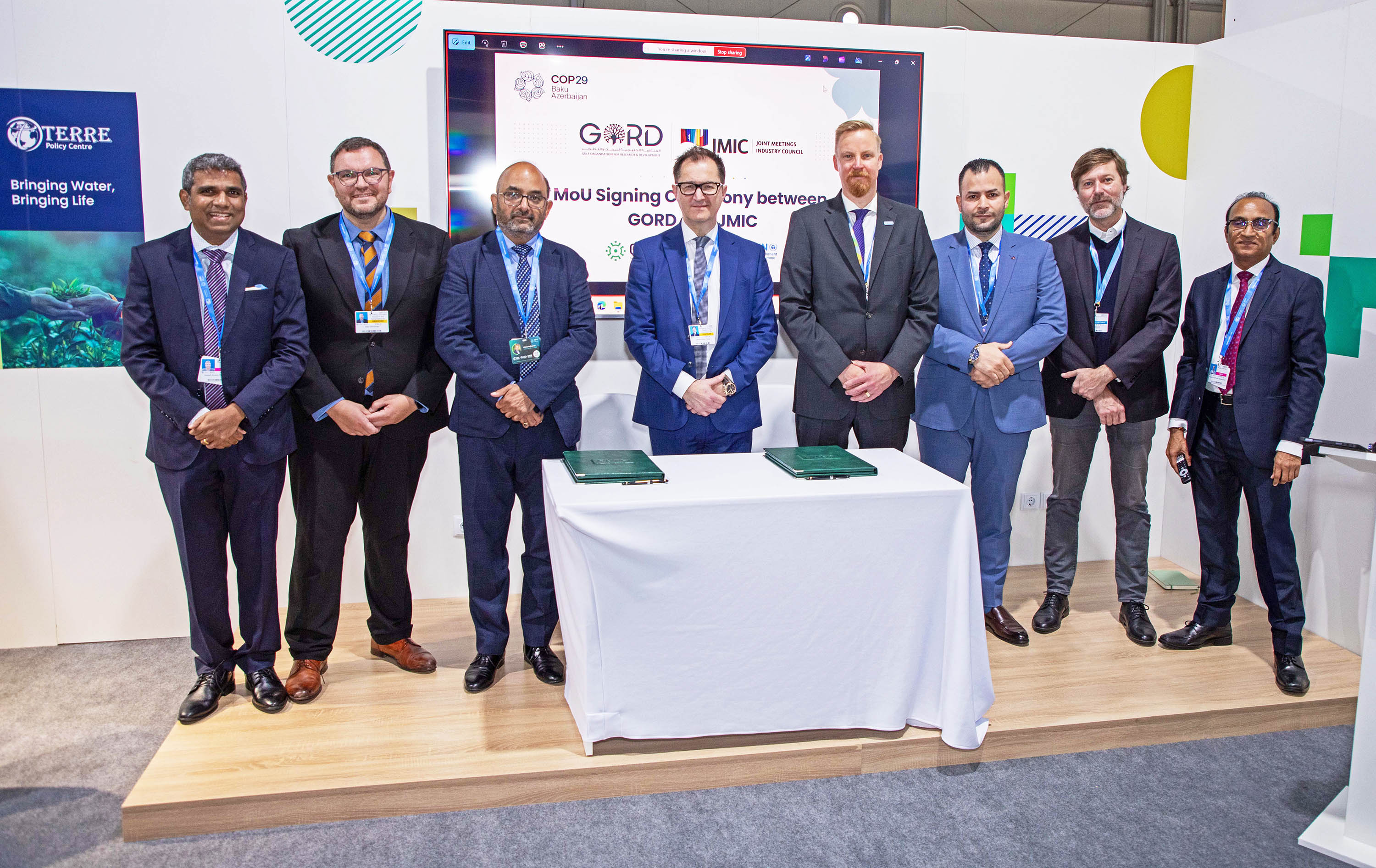
At the 29th United Nations Climate Change Conference of the Parties (COP29) in Baku, Azerbaijan, the Gulf Organisation for Research and Development (GORD) and its affiliate, the Global Carbon Council (GCC), highlighted their dedication to addressing global climate challenges.
Through a series of strategic collaborations with international and regional organizations, GORD and GCC are taking decisive steps to advance sustainable development and climate action.
A Milestone Collaboration with UNOSSC
One of the most significant developments at COP29 was signing a Memorandum of Understanding (MoU) between GORD and the United Nations Office for South-South Cooperation (UNOSSC). This partnership aims to foster collaboration across the Global South by establishing the South-South and Triangular Cooperation Solutions Lab.
This initiative is designed to leverage the collective expertise of Global South countries while incorporating triangular cooperation with the Global North. The lab’s goal is to accelerate the United Nations Sustainable Development Goals (SDGs) by scaling up innovative solutions in key sectors, including climate action, clean energy, health, and sustainable agriculture.
Dr. Yousef Alhorr, Founding Chairman of GORD and GCC, emphasized the importance of this collaboration, stating, “By joining forces for the creation of the South-South and Triangular Cooperation Solutions Lab, we are continuing our commitment to driving innovation and fostering practical solutions that meet the unique development challenges of the Global South.”
Driving Sustainability in the Events Industry
In a parallel effort to promote sustainable practices, GORD signed another MoU with the Joint Meeting Industry Council (JMIC). This partnership seeks to drive the adoption of the Green Events Tool (GET), a web-based platform developed in collaboration with the United Nations Environment Programme (UNEP) and the UN Framework Convention on Climate Change (UNFCCC).
The GET enables event organizers to measure and report the environmental impact of their events, focusing on areas such as energy use, transportation, and waste management. This collaboration supports the Net Zero Carbon Events (NZCE) initiative, which aims for net-zero emissions in the events sector by 2050.
Dr. Alhorr remarked, “The events industry is on a growth trajectory that, if left unchecked, could exacerbate its environmental footprint. While the Green Events Tool offers a powerful solution to measure and mitigate that impact, its potential can only be realized when it is adopted at scale.”
Advancing Renewable Energy in the MENA Region
GORD’s partnership with the Regional Centre for Renewable Energy and Energy Efficiency (RCREEE) reflects its commitment to accelerating the MENA region’s energy transition. Through this collaboration, the two organizations will promote renewable energy adoption, energy-efficient building practices, and the use of GORD’s Energia Suite software to assess and reduce the carbon footprint of buildings.
Dr. Alhorr highlighted the importance of this initiative, stating, “Given the Arab region’s historical reliance on hydrocarbons, it is critical that we embrace a diverse energy future that includes renewable energy and energy-efficient solutions.”
Supporting Carbon Markets in Burundi
GORD’s Climate Action Center of Excellence (CACE) signed a Memorandum of Cooperation with the Ministry of Environment, Agriculture, and Livestock in Burundi to expand its global reach. This agreement aims to develop a robust regulatory framework for carbon markets under Article 6 of the Paris Agreement.
CACE will assist Burundi in establishing transparent and effective carbon market systems through capacity-building activities, technical assistance, and stakeholder engagement. The project’s first phase will focus on developing policies and standards to ensure the credibility and integrity of Burundi’s carbon markets.
As COP29 progresses, GORD and GCC are maintaining a solid presence throughout the conference. Their pavilion in the Blue Zone (Booth F03) serves as a hub for knowledge exchange, hosting technical sessions and presentations from leading climate experts.
While the first week of COP29 centered on formalizing strategic MoUs and agreements, the second week will focus on engaging stakeholders and accelerating the adoption of low-carbon solutions worldwide. GORD’s multifaceted approach to tackling climate challenges demonstrates its unwavering commitment to sustainable development. It sets a powerful example for other organizations to follow in the fight against climate change.

.jpg) Equipe de rédaction
Equipe de rédaction